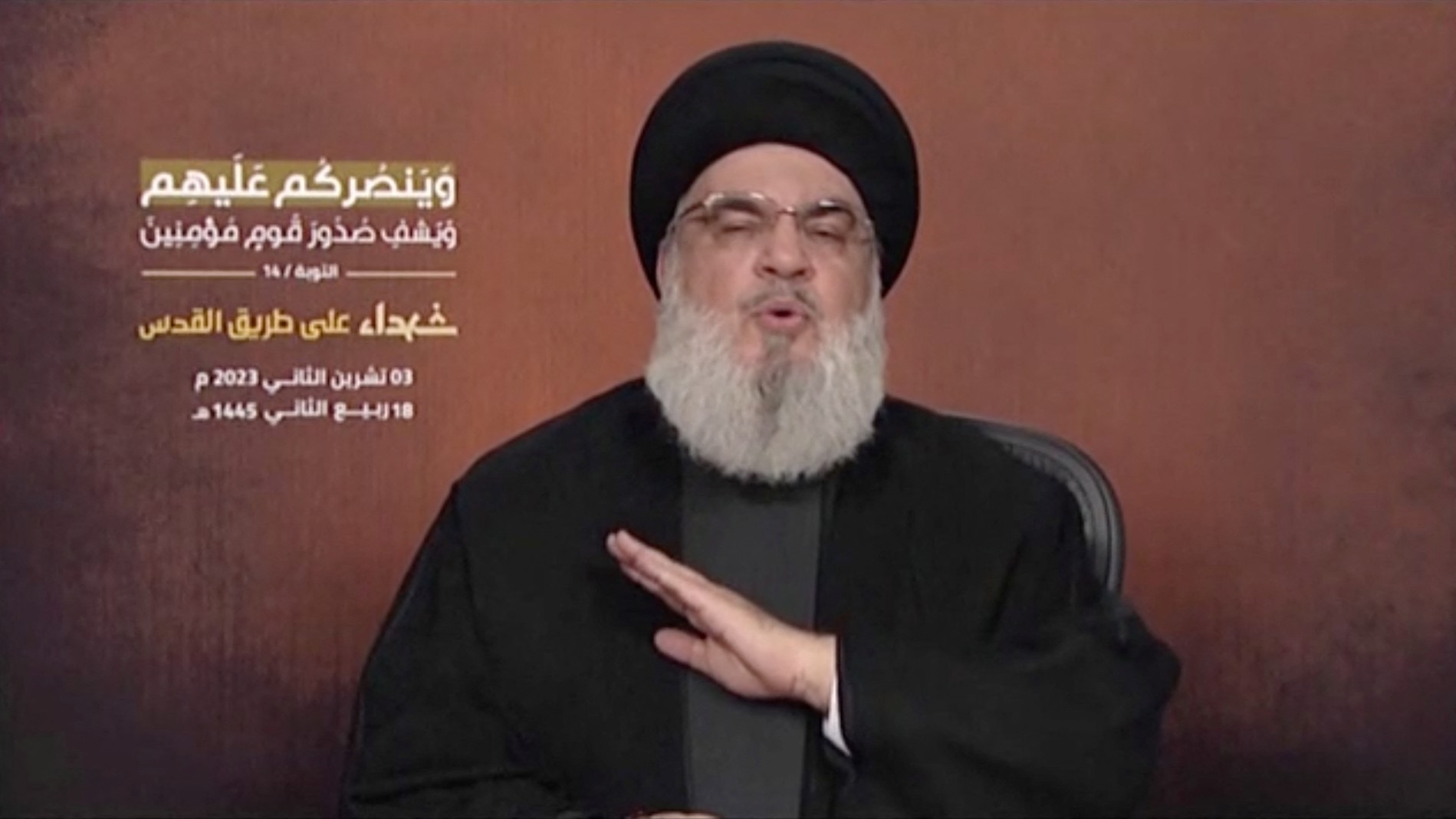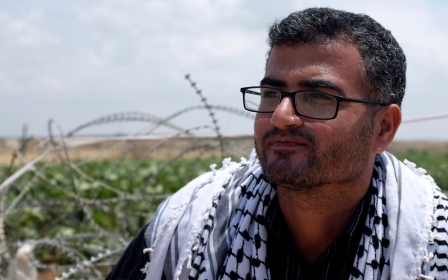Israel-Palestine war: Hezbollah's Nasrallah says regional war a 'realistic possibility'

The leader of Lebanon’s Hezbollah movement, Hassan Nasrallah, said a regional war was a "realistic possibility" and that ending the conflict in Gaza and ensuring a Hamas victory against Israel were his group’s main objectives.
Speaking for the first time since a 7 October Palestinian attack on Israeli communities and subsequent bombardment of Gaza, which risks spiralling into a wider conflict, Nasrallah said the fighting was unlike previous flare-ups in the coastal enclave and was a “decisive battle”.
Nasrallah said the Hamas-led attack, which killed around 1,400 Israelis, was solely conducted by Palestinians and completely secretive.
He said it was not revealed to any of the factions that make up the anti-Israeli “Axis of Resistance”, which includes Hezbollah and Hamas and is led by Iran.
Nasrallah said because of this, Hezbollah only entered the conflict the next day.
Stay informed with MEE's newsletters
Sign up to get the latest alerts, insights and analysis, starting with Turkey Unpacked
For four weeks, Israel has waged a relentless bombing campaign on Gaza, killing more than 9,000 Palestinians, including over 3,000 children.
So far, more than 50 Hezbollah fighters have been killed by Israel, as the Shia movement targets Israeli forces and communities from south Lebanon. Nasrallah said there were 57 Lebanese “martyrs”.
“Those who ask for Hezbollah to enter a full battle with the enemy will find” what is done so far “modest”, he said.
Nasrallah claimed Hezbollah’s actions so far had forced a third of Israel’s army and half its navy to be directed northwards instead of at Gaza. He said 43 Israeli towns and villages had been evacuated of its civilians.
Nasrallah hailed the efforts of Iraqi paramilitaries, who have struck US bases in Iraq and Syria, and Yemen’s Houthi movement, which has fired rockets and drones at Israel. He said the chances of full escalation on the Lebanese front are “realistic”.
Follow our live blog for all the latest on the Israel-Palestine war
But he warned Israel that if it conducts any major operation against Lebanon “you would be committing the biggest foolishness in your history and the history of your presence”.
“All options are on the table on the Lebanese front,” he said. If Israel continues targeting civilians in Lebanon, “then we will go back to ‘a civilian for a civilian’.”
Warning to America
The Hezbollah leader said the conflict was related only to the Palestinian people, and no other regional issue, perhaps a reference to talks between Saudi Arabia and Israel of establishing diplomatic ties.
Calling the Hamas-led attack an “earthquake”, Nasrallah repeated his old description of Israel as “more fragile than a spider’s web”.
He said Israel’s objective to completely crush Hamas was impossible. “Is there anyone with a brain in his head who would have such a goal?” he asked.
Nasrallah compared the current conflict to the 2006 Israel war on Lebanon, when the Israelis sought a military solution instead of negotiations and was mired in a battle with Hezbollah that ended in stalemate.
“The end of this battle will be Gaza’s victory, and the defeat of this enemy,” he said, calling on the United States to bring the war to an end.
'I think the red line is how long Hamas can sustain the onslaught'
- Randa Slim, analyst
“Your interests, your soldiers, your fleets” will be the biggest victims in a regional war, he told the US, reminding the Americans of the deadly attacks on their troops in Lebanon during the 1980s.
Randa Slim, senior fellow at the Middle East Institute think tank, told Middle East Eye that Nasrallah had upped the ante somewhat by saying "you kill civilians, we kill civilians".
“He has put some price tag on the Israeli attack,” she said. However, Slim said the Hezbollah leader had not made it clear what threshold would push the movement into a larger escalation.
“I think the red line is how long Hamas can sustain the onslaught, they will continue with their [current] pattern of escalation,” she said.
Hassan Haidar, a 43-year-old Lebanese Hezbollah supporter, said the movement's followers were perhaps expecting a little more from Nasrallah's speech as it is an emotional time. But he acknowledged that "no one is expecting him to go to a total war”.
“This is our leader, at the end of the day, so we do as he pleases,” he told MEE. “I was happy that his speech was stronger against the US than against Israel.”
Nasrallah said the vagueness of his and Hezbollah's approach has been a tactical ploy.
“As usual, we understand 40 percent of his speech, and the following days will make us understand the remaining 60 percent,” Haidar said.
Middle East Eye delivers independent and unrivalled coverage and analysis of the Middle East, North Africa and beyond. To learn more about republishing this content and the associated fees, please fill out this form. More about MEE can be found here.




